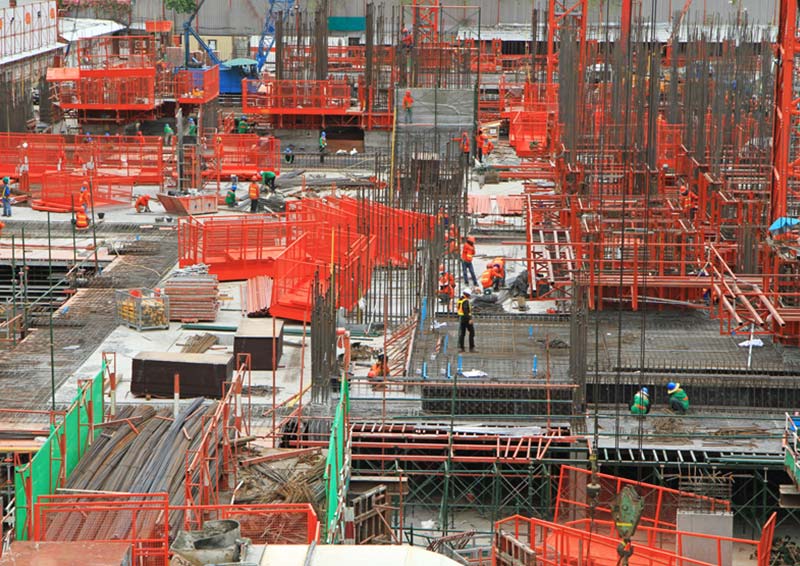Project performance management
Contents |
[edit] Introduction
Project performance management is an aspect of the management process that concentrates specifically on performance (or outcome). This focus on performance comes in the form of the creation, implementation and management of actions that can potentially benefit the organisation in a broad, strategic manner (rather than at a smaller, task-based level). Project performance management is a continuous exercise that encompasses the entire project scope and management process.
Under certain circumstances, a successful project outcome may mean more to an organisation than simply satisfying time and budget requirements. In these instances, project performance management can be used as a tool to measure the final outcome of a project based on how well it provides strategic support that contributes to the success of an organisation.
[edit] Origins
Before there was project performance management, there was performance management - a business management concept introduced in the 1800s. During the early days, performance management was a simple human resources function that documented how well an individual executed a set of tasks. A supervisor would make an observation and record the evaluation of the worker’s performance.
Over the years, this process has progressed beyond operational worker performance to include the individual’s contribution to the strategic performance of the organisation. Most recently, it has expanded into other aspects and departments of an organisation, incorporating culture, mission, policies and other considerations. Ideally, organisations can use these techniques to create a culture that is aligned to its strategy and focused on the organisation rather than on individual projects.
[edit] Three focus areas
Project performance management concentrates on three areas:
- Direct links. Identifying the overall beneficial aspects of the project can reveal whether a project is truly relevant or potentially unnecessary.
- Performance tracking. Keeping accurate records of tasks as they are executed can help determine whether or not the project is delivering the desired results.
- Final review. Assessing the completed project should not only determine if goals were achieved but also reveal what aspects could be improved.
[edit] Staying on track
Methods of project performance management within an organisation tend to change over time. This is considered beneficial as long as the projects remain profitable and drive organisational improvements in a positive strategic direction.
[edit] Related articles on Designing Buildings Wiki
Featured articles and news
Statement from the Interim Chief Construction Advisor
Thouria Istephan; Architect and inquiry panel member outlines ongoing work, priorities and next steps.
The 2025 draft NPPF in brief with indicative responses
Local verses National and suitable verses sustainable: Consultation open for just over one week.
Increased vigilance on VAT Domestic Reverse Charge
HMRC bearing down with increasing force on construction consultant says.
Call for greater recognition of professional standards
Chartered bodies representing more than 1.5 million individuals have written to the UK Government.
Cutting carbon, cost and risk in estate management
Lessons from Cardiff Met’s “Halve the Half” initiative.
Inspiring the next generation to fulfil an electrified future
Technical Manager at ECA on the importance of engagement between industry and education.
Repairing historic stone and slate roofs
The need for a code of practice and technical advice note.
Environmental compliance; a checklist for 2026
Legislative changes, policy shifts, phased rollouts, and compliance updates to be aware of.
UKCW London to tackle sector’s most pressing issues
AI and skills development, ecology and the environment, policy and planning and more.
Managing building safety risks
Across an existing residential portfolio; a client's perspective.
ECA support for Gate Safe’s Safe School Gates Campaign.
Core construction skills explained
Preparing for a career in construction.
Retrofitting for resilience with the Leicester Resilience Hub
Community-serving facilities, enhanced as support and essential services for climate-related disruptions.
Some of the articles relating to water, here to browse. Any missing?
Recognisable Gothic characters, designed to dramatically spout water away from buildings.
A case study and a warning to would-be developers
Creating four dwellings... after half a century of doing this job, why, oh why, is it so difficult?
Reform of the fire engineering profession
Fire Engineers Advisory Panel: Authoritative Statement, reactions and next steps.
Restoration and renewal of the Palace of Westminster
A complex project of cultural significance from full decant to EMI, opportunities and a potential a way forward.
Apprenticeships and the responsibility we share
Perspectives from the CIOB President as National Apprentice Week comes to a close.


























